Last month, the AAPSS honored Bryan Stevenson, winner of the 2024 Daniel Patrick Moynihan Prize. Stevenson delivered the 2024 Moynihan Lecture on Social Science and Public Policy in Washington, DC, at Georgetown University’s McCourt School of Public Policy. The event was co-sponsored by Sage Publishing.
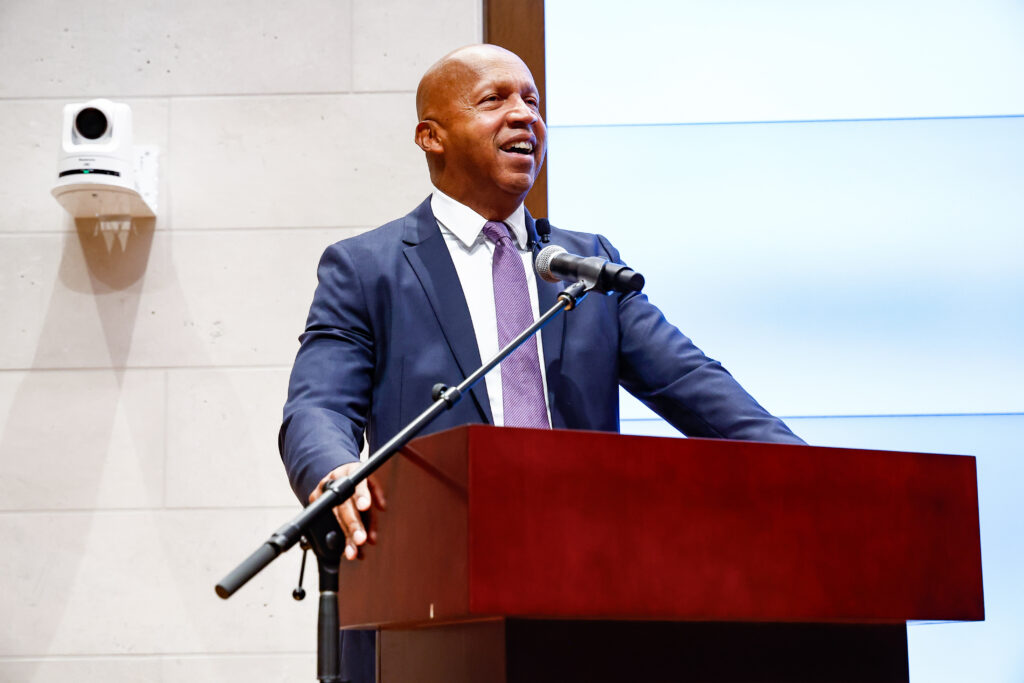
(Photo by Paul Morigi)
Stevenson was introduced by Carol Anderson, the AAPSS’s 2021 W.E.B. Du Bois Fellow and a professor of African American studies at Emory University. Anderson commended Stevenson’s work to illuminate the experiences of African Americans—both the humanity and stories often erased by history and the larger societal factors that have shaped their struggles.
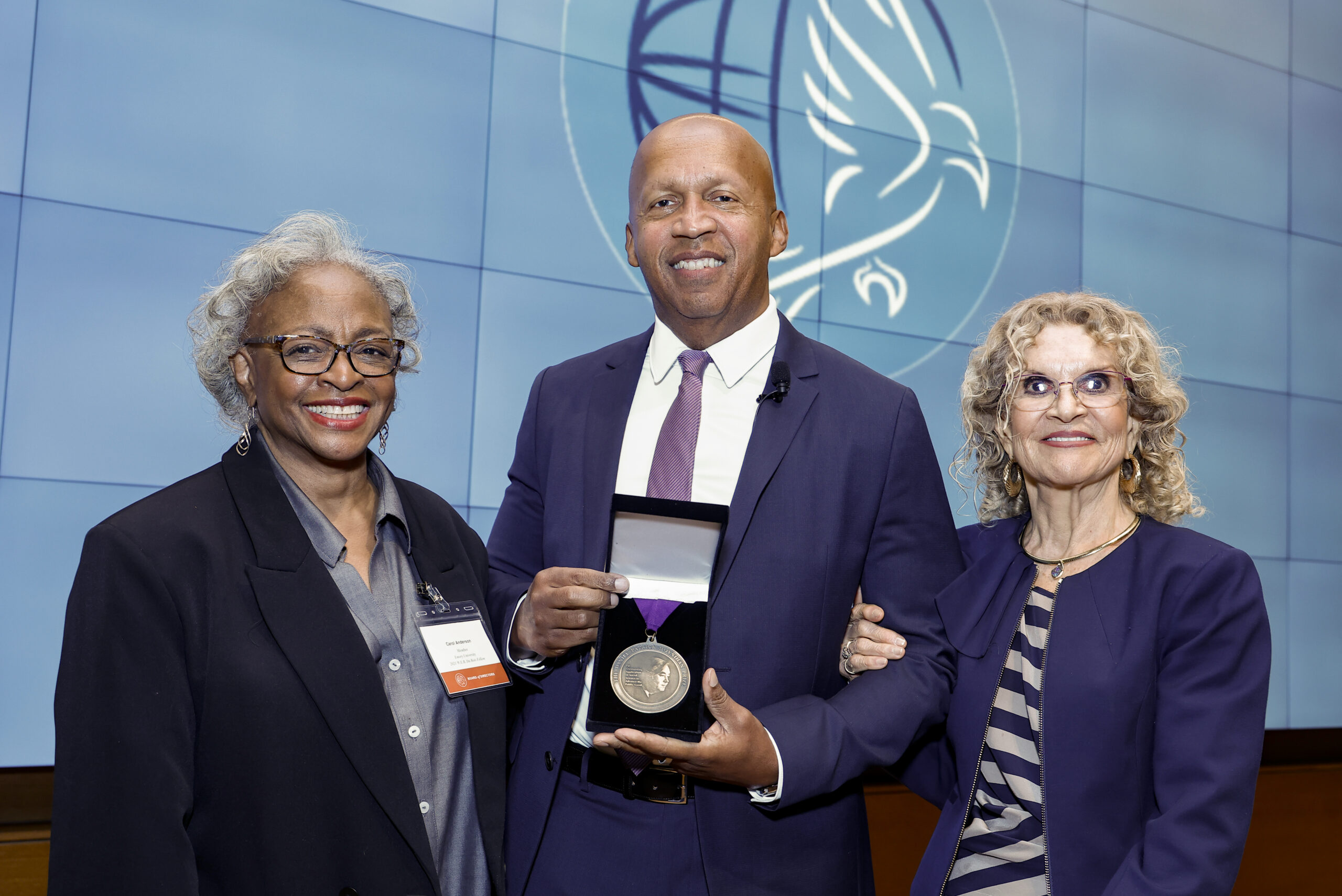
(Photo by Paul Morigi)
Stevenson began his lecture by speaking about the importance of proximity in policy-based approaches to righting societal wrongs, stressing that too many policies have been made by individuals with insufficient knowledge of people who are affected by those policies. He argued that greater proximity to the disfavored would increase understanding of the nuances of societal ills and, consequently, improve efforts to remedy them. This mentality guides the work of his nonprofit, the Equal Justice Initiative (EJI). Stevenson told of how he came to understand the importance of proximity to the making of social policy when, as a young law student, he had a transformative conversation with a death-row inmate in Atlanta. The inmate’s optimism in difficult circumstances moved Stevenson to dedicate his career to helping those who are condemned and disenfranchised.
As an example of how proximity has improved the work of the EJI, Stevenson discussed a recent initiative to reduce food insecurity among near-poor families in the South. Interviews with participating families revealed difficulties and nuances previously not considered by broader welfare programs. The EJI adapted its strategy accordingly, issuing debit cards that not only addressed families’ immediate material needs but also gave recipients a sense of dignity and agency that they had not had with federal aid or charity programs. Families who had lost a primary income earner due to injury, chronic illness, or premature death were then able to pay for health care for the sick family member to return to work or transportation for another family member to pursue employment in their absence. In Stevenson’s view, none of this would have been possible without proximity to these families and understanding of the circumstances that caused their hardships.
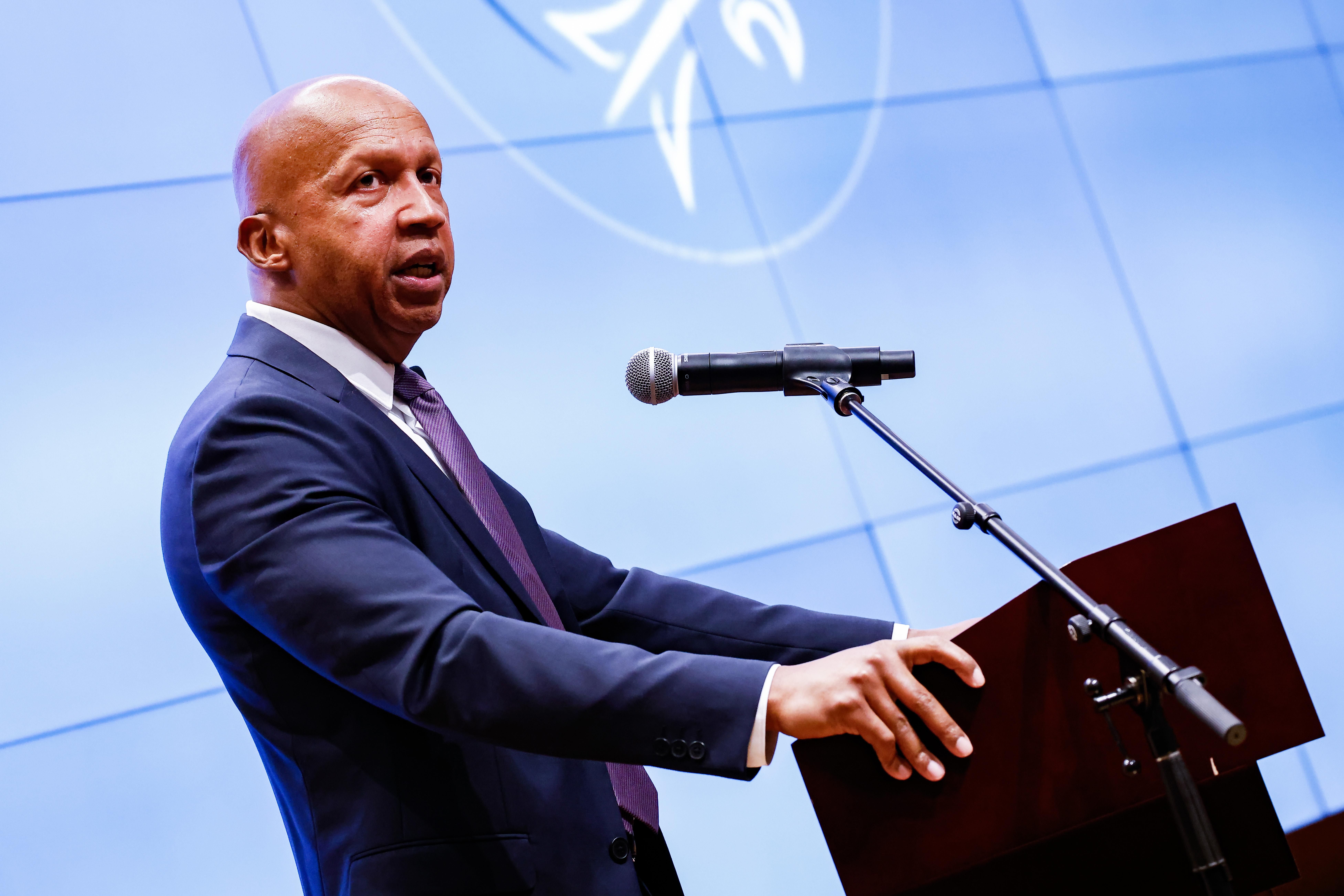
The second half of Stevenson’s lecture addressed his efforts to change narratives of racial injustice in the United States. Stevenson spoke of “narratives of fear and anger” that were used to justify the enslavement of Africans and continue to motivate the social oppression of Black Americans today. While other countries, such as South Africa and Germany, have openly acknowledged historical mass violence and amplified victims’ stories, the South lacked similar public recognition of anti-Black violence. Under Stevenson’s leadership, the EJI began to erect historical markers at lynching sites, and jars of soil collected from these sites are displayed in the Legacy Museum in Montgomery, Alabama. By embracing these difficult truths, Stevenson said, justice can prevail against hopelessness.
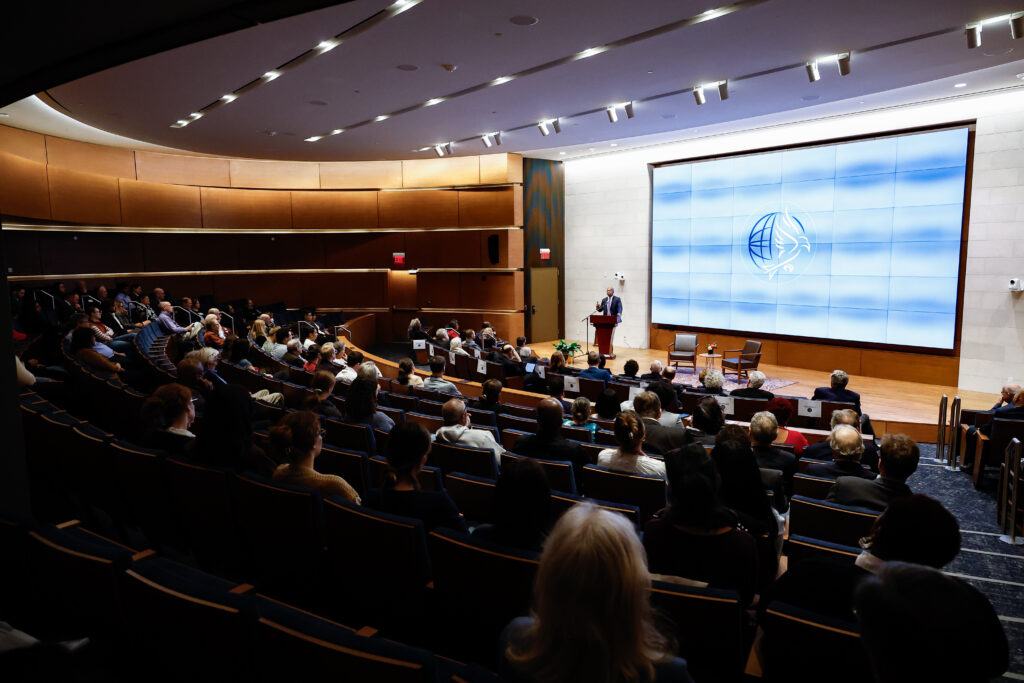
Following the lecture, Stevenson participated in a short Q&A session with Jamelle Bouie, a columnist for The New York Times and a member of the AAPSS’s board of directors.
“This year’s Moynihan Prize recognized Bryan Stevenson’s steadfast commitment to civil rights and judicial reform through his advocacy and defense of the wrongly convicted and excessively sentenced,” said AAPSS President Marta Tienda. “His powerful storytelling exposes the brazen racism in the U.S. justice system, and his many triumphs exonerating the wrongly convicted inspire hope for rectifying racial and economic biases in the justice system.”
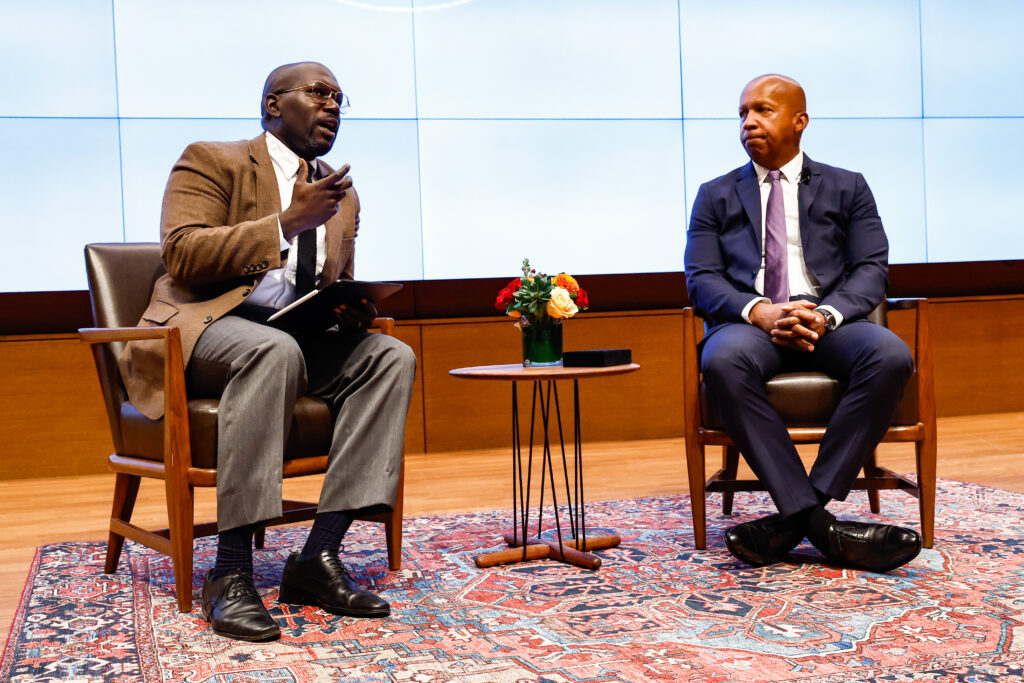
(Photo by Paul Morigi)
Video of Anderson and Tienda’s introductions, as well as Stevenson’s post-lecture conversation with Bouie, is available here and on YouTube.

